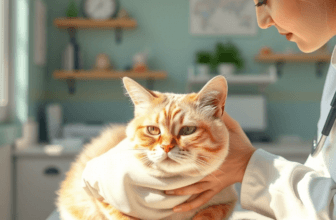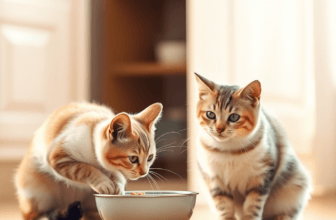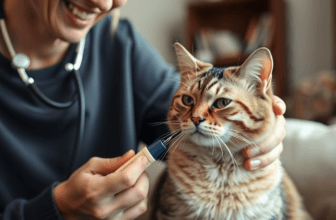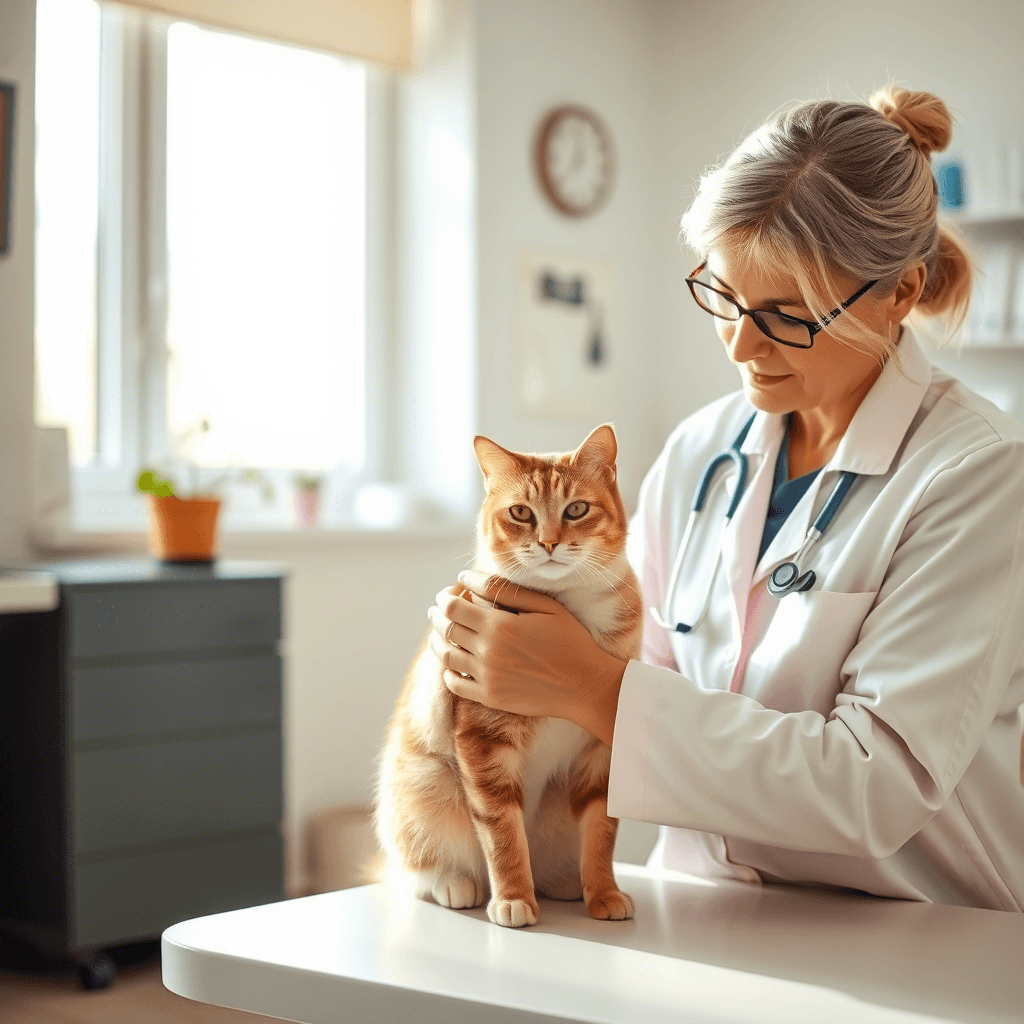
Table of Contents
As our beloved feline companions age, they become more susceptible to various health issues, one of the most common being diabetes. Diabetes in senior cats is a condition that requires careful management to ensure your cat maintains a good quality of life. If you’ve noticed your senior cat drinking more water, urinating frequently, or losing weight despite a healthy appetite, it might be time to consider the possibility of diabetes.
This article will provide you with a comprehensive guide on how to manage diabetes in senior cats effectively. We’ll cover everything from understanding the symptoms and diagnosis to implementing dietary changes, administering insulin, and making lifestyle adjustments. By the end of this article, you’ll have a clear action plan to help your senior cat live a healthier, more comfortable life.
Understanding Diabetes in Senior Cats
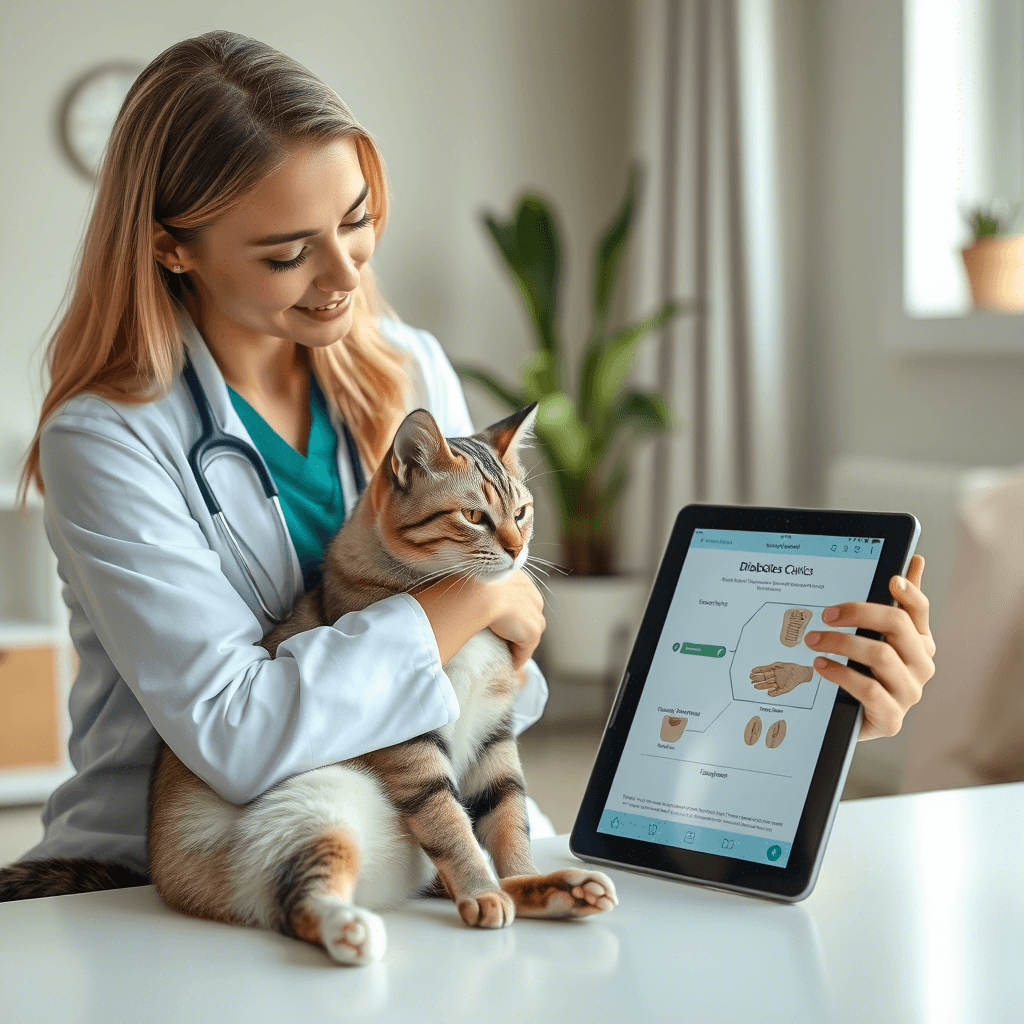
Diabetes mellitus, commonly referred to as diabetes, is a chronic condition that affects the way your cat’s body regulates blood sugar (glucose). In senior cats, diabetes is often linked to obesity, poor diet, and a sedentary lifestyle. There are two main types of diabetes in cats:
- Type 1 Diabetes: This is less common and occurs when the pancreas fails to produce enough insulin.
- Type 2 Diabetes: This is more common in cats and occurs when the body becomes resistant to insulin.
Symptoms to Watch For:
- Increased thirst and urination
- Weight loss despite a good appetite
- Lethargy and weakness
- Poor coat condition
- Vomiting or dehydration
If you notice any of these symptoms, it’s crucial to consult your veterinarian for a proper diagnosis. Early detection and treatment can significantly improve your cat’s prognosis.
Diagnosing Diabetes in Senior Cats
Diagnosing diabetes in senior cats involves a series of tests conducted by your veterinarian. These may include:
- Blood Glucose Test: Measures the level of glucose in your cat’s blood.
- Urinalysis: Checks for the presence of glucose and ketones in the urine.
- Fructosamine Test: Provides an average blood glucose level over the past two weeks.
Once diagnosed, your vet will work with you to develop a management plan tailored to your cat’s specific needs.
Managing Diabetes in Senior Cats: A Step-by-Step Guide
1. Dietary Changes:
Diet plays a crucial role in managing diabetes in senior cats. A high-protein, low-carbohydrate diet is often recommended to help regulate blood sugar levels. Some popular options include:
- Prescription Diets: These are specially formulated for diabetic cats and are available through your veterinarian.
- Wet Food: Wet food generally has fewer carbohydrates than dry food and can help with weight management.
- Homemade Diets: If you prefer to prepare your cat’s food at home, consult your vet to ensure the diet is balanced and meets your cat’s nutritional needs.
2. Insulin Therapy:
Most diabetic cats will require insulin injections to manage their condition. Your vet will teach you how to administer these injections at home. It’s essential to follow the prescribed dosage and schedule strictly.
3. Regular Monitoring:
Regular monitoring of your cat’s blood glucose levels is crucial. This can be done at home using a glucometer or through regular vet check-ups. Keeping a log of your cat’s glucose levels, diet, and insulin doses can help you and your vet make necessary adjustments to the treatment plan.
4. Weight Management:
Obesity is a significant risk factor for diabetes in cats. If your senior cat is overweight, your vet may recommend a weight loss plan that includes portion control and increased physical activity.
5. Exercise:
While senior cats may not be as active as their younger counterparts, regular exercise is still important. Encourage playtime with toys or laser pointers to help your cat stay active and maintain a healthy weight.
6. Regular Vet Check-ups:
Regular vet visits are essential for monitoring your cat’s overall health and making any necessary adjustments to the treatment plan. Your vet may also recommend additional tests to check for complications related to diabetes, such as kidney disease or hypertension.
Real-World Examples and Case Studies
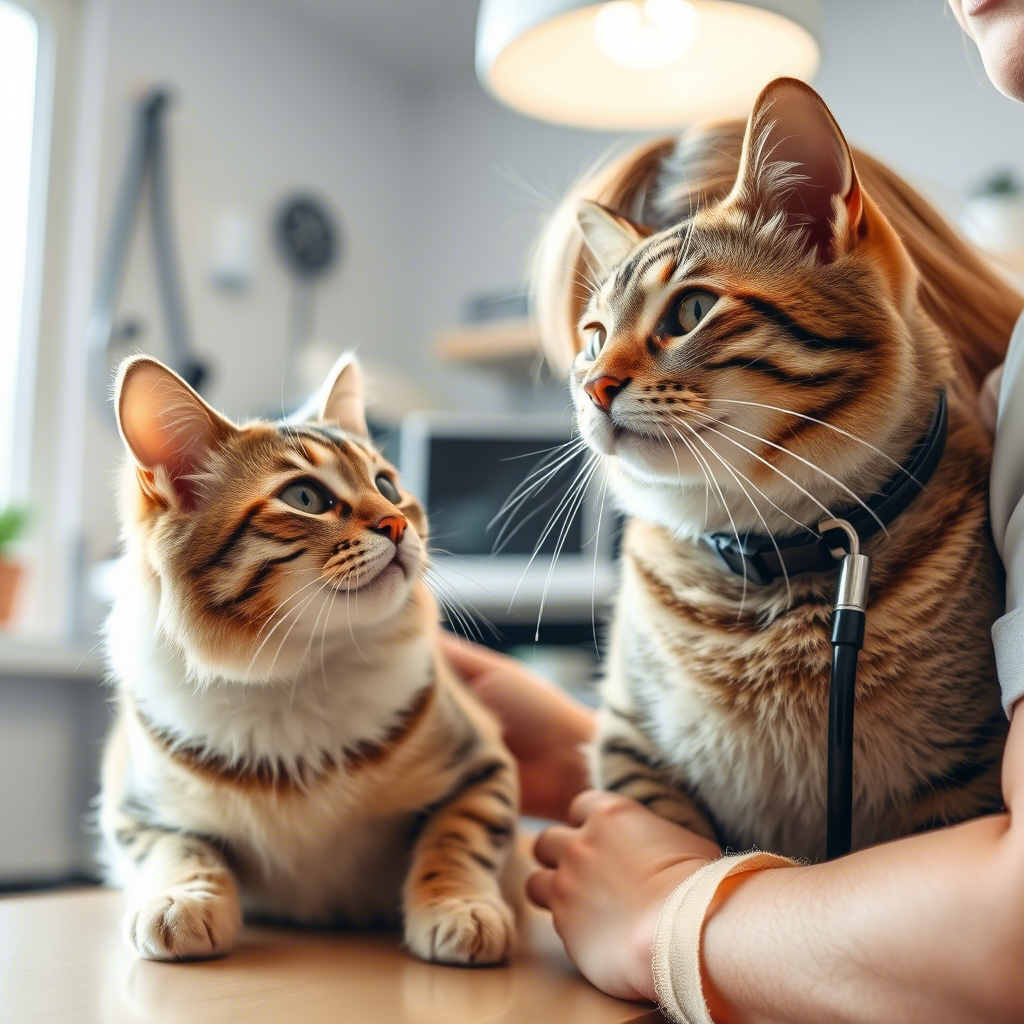
Case Study 1: Max, a 12-Year-Old Diabetic Cat
Max was diagnosed with diabetes after his owner noticed he was drinking more water and losing weight. With a combination of a high-protein diet, insulin therapy, and regular exercise, Max’s blood sugar levels stabilized, and he regained a healthy weight.
Case Study 2: Bella, a 10-Year-Old Diabetic Cat
Bella’s diabetes was discovered during a routine vet check-up. Her owner switched her to a prescription diet and began administering insulin injections. With regular monitoring and vet visits, Bella’s diabetes is now well-managed, and she enjoys a good quality of life.
Dr. Jane Smith, a renowned veterinarian specializing in feline diabetes, emphasizes the importance of early detection and a tailored treatment plan. “Every cat is different, and what works for one may not work for another. It’s essential to work closely with your vet to develop a management plan that suits your cat’s specific needs.”
Conclusion
Managing diabetes in senior cats may seem daunting at first, but with the right approach, it’s entirely possible to help your feline friend live a long, healthy, and happy life. By making dietary changes, administering insulin as prescribed, and maintaining regular vet check-ups, you can effectively manage your cat’s diabetes and prevent complications.
Remember, early detection and consistent management are key. If you suspect your senior cat may have diabetes, don’t hesitate to consult your veterinarian. Together, you can create a plan that ensures your cat’s well-being and quality of life.
If you found this article helpful, please share it with other cat owners who might benefit from this information. And don’t forget to subscribe to our newsletter for more tips on keeping your pets healthy and happy!
FAQ : Diabetes in Senior Cats
What are the early signs of diabetes in senior cats?
Early signs of diabetes in senior cats include increased thirst and urination, weight loss despite a good appetite, lethargy, and a poor coat condition. If you notice any of these symptoms, consult your veterinarian for a proper diagnosis.
Can diabetes in senior cats be cured?
While diabetes in cats is generally a lifelong condition, some cats may go into remission with proper management, including diet, insulin therapy, and weight loss. However, ongoing monitoring and care are essential.
How often should I monitor my senior cat’s blood glucose levels?
The frequency of monitoring depends on your cat’s specific needs and treatment plan. Some cats may require daily monitoring, while others may need less frequent checks. Your veterinarian will provide guidance on how often to monitor your cat’s glucose levels.
What should I feed my diabetic senior cat?
A high-protein, low-carbohydrate diet is generally recommended for diabetic cats. Prescription diets, wet food, and homemade diets (with vet approval) are all good options. Please consult your veterinarian to find out the best diet for your cat.
How do I administer insulin to my cat?
Your veterinarian will teach you how to administer insulin injections at home. It’s essential to follow the prescribed dosage and schedule strictly. Always use the correct syringe size and technique to ensure your cat’s safety.
Can exercise help manage diabetes in senior cats?
Yes, regular exercise can help manage diabetes by promoting weight loss and improving insulin sensitivity. Encourage playtime with toys or laser pointers to keep your cat active.
What are the potential complications of diabetes in senior cats?
Potential complications include kidney disease, hypertension, and neuropathy. Regular vet check-ups and proper management can help prevent these complications.




